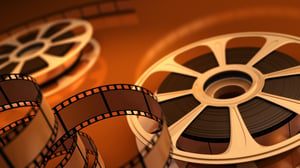 If you’d told people in the 1940’s about devices that could fit in the palm of your hand which could accurately transmit your position to within a few feet using satellites, they’d probably think such devices would only exist in science fiction or spy movies.
If you’d told people in the 1940’s about devices that could fit in the palm of your hand which could accurately transmit your position to within a few feet using satellites, they’d probably think such devices would only exist in science fiction or spy movies.
Now, however, not only do GPS devices exist, the technology has become almost ubiquitous, as people now use the technology for everyday navigation tasks such as going to a new address or finding a faster route around road construction. GPS devices can even provide drivers with traffic alerts, helping save users from getting stuck in traffic.
GPS devices have even been used in movies, showing just how much of a part of daily life these systems are for modern people. But, have GPS devices ever helped save the day?
Well, yes. However, there are a lot of movies where GPS tracking and/or mapping devices would have been very useful to the characters, but either didn’t exist or just went unused for some reason.
How different would these movies have been if the characters had GPS tracking devices with them?
Here’s a list of five movies that would have been very different with GPS tracking:
5: Lord of the Rings
While the setting of Middle Earth is pure fantasy that assumes a medieval level of technology, just imagine how much faster Frodo and Samwise’s trip to Mount Doom would have been with the benefit of GPS tracking and mapping equipment.
Rather than having to navigate through Mordor with the help of a treacherous guide, Frodo and Sam could have gotten a GPS map marker that would help them avoid the haunted glens, giant spider-infested caves, and orc outposts of that fantasy world.
How much faster would Frodo and Sam have reached Mount Doom with the help of a GPS map?
4: Cast Away
You have to feel sorry for Tom Hanks’ character Chuck Noland in this lost-at-sea movie. After surviving a plane crash in the middle of the ocean, he gets stranded on a deserted isle in the middle of nowhere.
And, he doesn’t have an emergency beacon or any other way to contact the outside world to alert others to his plight and current location. After four years, he finally escapes the island on a raft, chancing upon a cargo freighter after a near-death encounter.
Had Chuck managed to retrieve a GPS beacon from the plane or the life raft and held onto it until he landed on the island, the movie might have been very different. Rather than taking years for rescue to arrive, such a distress beacon would have led rescue teams right to Chuck’s location in mere days.
Although, in a hidden Easter egg on the film’s DVD release, there was a joke comment where the director reveals that the contents of the FedEx package that Chuck refused to open was a solar-powered satellite cell phone.
3: Home Alone 2
Young Kevin in the Home Alone movies seems to have a penchant for getting separated from his family. In both Home Alone 1 and 2, Kevin’s family accidentally manages to lose him. The first time, he’s left at home, but the second time, he gets on the wrong flight and ends up in New York City.
Kevin’s family have to fly out to New York on short notice and try to locate him in the massive city without much help. If the McAllister family had invested in a tracking beacon for their boy, they could have received an approximate location for Kevin, narrowing their search and helping them find him faster.
Or, they could have given the GPS coordinates to NYC authorities to have them bring Kevin in for protection.
2: Speed
In this movie, a criminal plants a bomb on a bus that’s set to go off if the bus’ speed drops below 50 mph. In LA. As anyone who’s ever ridden through LAX traffic can attest, keeping your speed up on congested LA roads is tough, to say the least.
While GPS wouldn’t have disabled the bomb, it would give the authorities a report of the bus’ current position and heading as soon as they heard about the threat, allowing them to clear roads for the bus more quickly. Also, they could have used GPS maps to guide the bus to less-congested paths that the passenger-turned-driver played by Sandra Bullock wouldn’t have known about.
1: Misery
Here’s a classic example of a movie that would have been completely different if the characters had a GPS system.
In this movie James Caan plays the part of a novelist who gets into a vehicular crash during a blizzard. This would be bad enough, but the first person to find him after the crash is an obsessive fan played by Kathy Bates, who kidnaps the author to force him to write a new book of her favorite series for her.
During his captivity, Caan’s character is hobbled by Bates, and the man is severely traumatized by his experiences, hallucinating the presence of Bates’ character during casual conversation months after his escape.
Here, a GPS tracker in Caan’s car could have saved him a lot of misery. By tracking the position of his vehicle, and triggering an alert during the crash event, GPS would have enabled local law enforcement and rescue teams to arrive at the site of the crash quickly, possibly preventing the kidnapping of Caan’s character.
While the movies listed above are all works of fiction, they do highlight just how much of a difference that GPS tracking and mapping systems can make in emergency situations.






